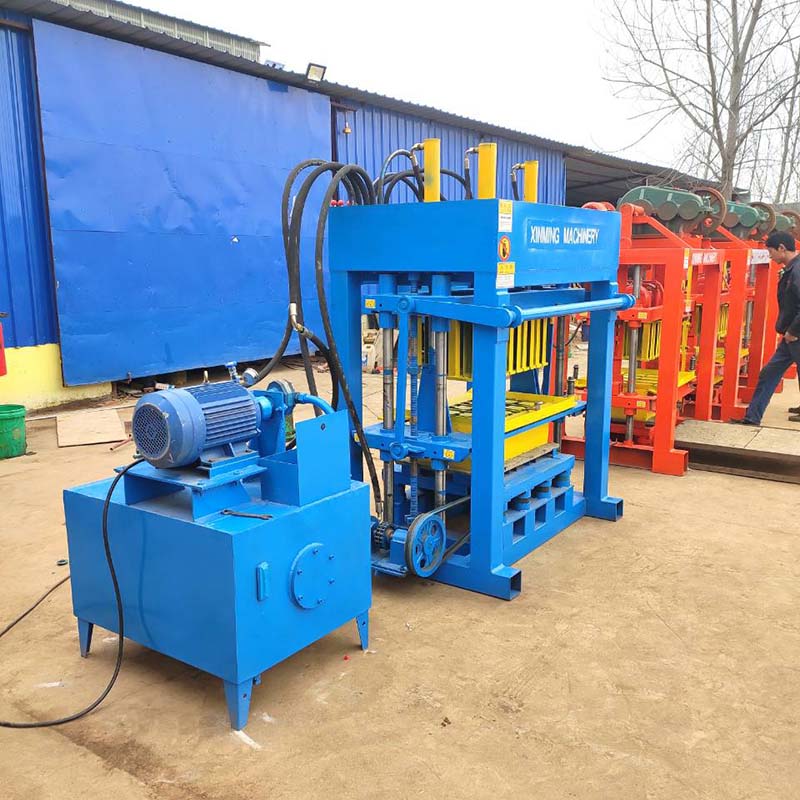
Image source:Aiwei block machine
The construction industry plays a pivotal role in shaping the world’s infrastructure, but it also has a significant environmental impact. As global concerns about climate change and resource conservation grow, there is a pressing need for more sustainable construction practices. One noteworthy advancement in this pursuit is the use of hydraulic concrete block machines. These machines not only enhance construction efficiency but also contribute to sustainable building practices. In this article, we will explore the concept of sustainable construction with hydraulic concrete block machines, focusing on their environmental benefits, energy efficiency, and broader implications for the construction industry.
Introduction
The construction industry is a major consumer of resources, including energy, water, and raw materials, while also generating substantial amounts of waste and emissions. Sustainable construction seeks to mitigate these impacts by adopting practices that reduce resource consumption, minimize waste, and decrease environmental harm. Hydraulic concrete block machines have emerged as a key technology in this endeavor due to their ability to produce building materials with a significantly lower environmental footprint.
Environmental Benefits
1. Reduced Raw Material Usage
Traditional brick and block production often involves the extraction of clay or the use of energy-intensive processes for cement production. Hydraulic concrete block machines use a mixture of cement, aggregate, and water, allowing for the efficient use of materials. Additionally, they can incorporate recycled materials like fly ash, reducing the demand for virgin resources.
2. Lower Energy Consumption
Hydraulic systems in block machines are highly efficient. They utilize hydraulic fluid to transmit power, resulting in minimal energy loss. The controlled application of force ensures that only the necessary energy is expended in the block-making process. Moreover, some hydraulic systems in modern machines incorporate energy recovery mechanisms, further reducing energy consumption.
3. Minimized Waste Generation
Traditional brick manufacturing can generate substantial waste, especially if manual labor is involved. Hydraulic concrete block machines, on the other hand, produce minimal waste. Any excess material can often be recycled into the production process, reducing landfill waste.
4. Reduced Emissions
The efficient operation of hydraulic concrete block machines translates to reduced emissions of greenhouse gases and other pollutants associated with brick and block production. This aligns with global efforts to mitigate climate change.
Energy Efficiency
Hydraulic concrete block machines are renowned for their energy efficiency, contributing to sustainable construction practices in several ways:
1. Efficient Use of Hydraulic Power
Hydraulic systems are known for their precision and efficiency in converting hydraulic pressure into mechanical force. This means that hydraulic concrete block machines can exert the necessary force to compress and form blocks with minimal energy waste.
2. Reduced Heat Generation
Unlike other mechanical systems, hydraulic systems generate less heat during operation. This characteristic minimizes the risk of overheating and enhances the longevity of machine components.
3. Energy Recovery
Some advanced hydraulic systems incorporate energy recovery mechanisms, such as regenerative braking. These systems capture and store excess energy generated during the machine’s operation and reuse it, further conserving energy.
Broader Implications for Sustainable Construction
The adoption of hydraulic concrete block machines represents a broader shift towards sustainability in the construction industry. Here are some key implications:
1. Scalability
Hydraulic concrete block machines are available in various sizes and capacities, making them suitable for both small-scale and large-scale construction projects. This scalability promotes the use of sustainable construction practices across the industry.
2. Quality and Durability
Blocks produced by hydraulic machines are known for their quality and durability. This ensures that sustainable construction practices result in long-lasting structures, reducing the need for frequent repairs or replacements.
3. Resource Efficiency
Sustainable construction practices prioritize resource efficiency, which is a core characteristic of hydraulic concrete block machines. By using materials more efficiently, construction projects reduce their overall environmental impact.
4. Regulatory Compliance
Many regions are implementing stricter environmental regulations in the construction industry. The use of hydraulic concrete block machines can help construction companies meet these regulatory requirements and avoid penalties associated with excessive resource consumption or emissions.
Case Studies in Sustainable Construction
To illustrate the real-world impact of hydraulic concrete block machines in sustainable construction, let’s explore a few case studies:
1. Singapore’s Public Housing
Singapore, known for its innovative urban planning, has integrated hydraulic concrete block machines into its public housing construction. These machines have enabled the efficient production of high-quality, sustainable building blocks, contributing to the city-state’s reputation for green and energy-efficient buildings.
2. Eco-Friendly Resorts in Bali
Bali’s tourism industry relies on eco-friendly resorts that blend luxury with sustainability. Hydraulic concrete block machines have been used to construct resorts that feature environmentally conscious designs and materials. These resorts showcase how sustainable construction practices can attract environmentally aware tourists.
3. Affordable Housing in South Africa
In South Africa, hydraulic concrete block machines have been instrumental in providing affordable housing solutions. By reducing material waste and energy consumption, these machines have made it possible to build quality homes at lower costs, addressing the critical need for housing in the country.
Conclusion
Sustainable construction with hydraulic concrete block machines represents a significant step towards reducing the environmental impact of the construction industry. Through reduced resource consumption, lower energy use, and minimized waste generation, these machines contribute to more eco-friendly building practices. As the construction sector continues to evolve, the adoption of such technologies will likely become even more crucial in addressing the global challenges of resource scarcity and climate change.
